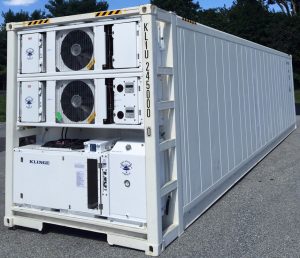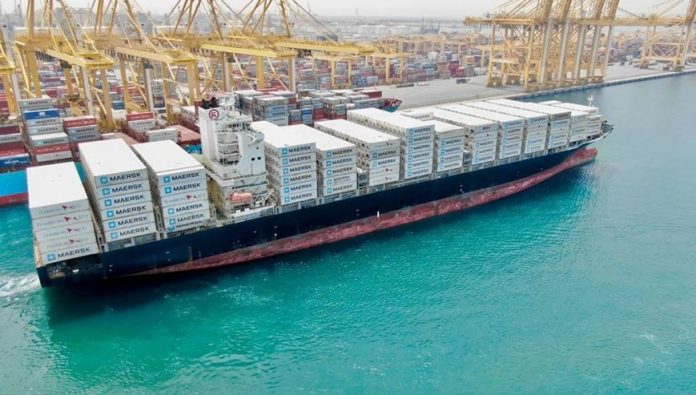US based reefer container specialist the Klinge Corporation to ramp up production as demand for specialist low temperature containers is expected to grow with the coming distribution of Covid-19 vaccines.
Vaccines tipped for approval over the coming weeks include the Pfizer/BioNtech jab, Moderna and the Oxford University/Astrazeneca injections. Of the three vaccines the Pfizer medication will be the most difficult to distribute, requiring temperatures of -70°C, while the Moderna serum will need temperatures of -20°C, while the Oxford/Astra Zeneca jab will require chilled containers, from 2-8°C. Both the lower temperature requirements can be met by standard reefer boxes.
Klinge president Allan Klinge said the company has been working with lines and freight forwarders to understand what will be required in the coming months. But with just 4,000-5,000 ultra-low temperature containers in operation currently, with many reportedly tied to contracts, there is a need to increase production to meet the coming demand.
“Our belief is that the first round of vaccines will go by air, but as the supply chain builds up more will go by sea as many countries will not be able to afford air cargo,” explained Klinge.
According to Pfizer the company has developed “storage innovations” to meet the logistics network’s needs. “We have specially designed, temperature-controlled thermal shippers utilising dry ice to maintain recommended temperature conditions for up to 10 days unopened. The intent is to utilise Pfizer-strategic transportation partners to ship by air to major hubs within a country/region and by ground transport to dosing locations,” a Pfizer spokesperson told Container News.
Currently the Pfizer vaccine can be stored at 2-8°C for up to five days at the point of use or for up to 15 days in the Pfizer containers if the dry ice is replaced, said the pharmaceutical company.
Pfizer added that it will “We will utilise GPS-enabled thermal sensors in every thermal shipper with a control tower that will track the location and temperature of each vaccine shipment across their pre-set routes. These GPS-enabled devices will allow Pfizer to proactively prevent unwanted deviations and act before they happen.”
Of the three vaccines expected to be approved next month in various jurisdictions the Pfizer vaccine will need the most complex supply chain, while the Moderna and Oxford/Astrazeneca vaccines will require standard reefer systems.
However, with the Pfizer medication expected to be the first approved the race is on to supply the necessary equipment and Klinge is already planning to double its output of ultra-low temperature containers.
“Current production levels are at 15-20/month of the dual refrigeration systems that offer the necessary redundancy in the units, but we need to scale that up to about 40/month once the sea supply chain is established,” said Klinge.

Maersk Lines’ global head of pharmaceuticals, Hristo Petkov said the company, which operates about a quarter of the global reefer fleet, will “Maintain a close dialogue with pharma companies about their vaccine logistics needs. The global distribution of Covid-19 vaccines will be a huge and very important undertaking and we currently expect the initial wave to be transported by air, followed by larger waves where all modes of transport will contribute.”
Petkov went on to say that the successful distribution of all the vaccines will rely on industry-wide collaboration within the global supply chain with temperature requirements during transport a key element of the quality standards.
“Such requirements are still developing. As vaccines further mature, more manageable temperature requirements may appear, but it is too early to draw any conclusions in this regard,” said Petkov.
However, he pointed out that the carrier’s revamped Remote Container Management (RCM) platform featuring the virtual assistant Captain Peter “enables each of our around 360.000 reefer boxes to report reefer temperature and humidity in near-real time.”
Nick Savvides
Managing Editor







